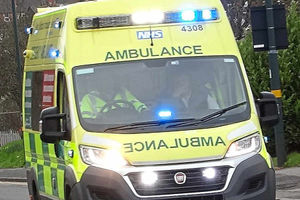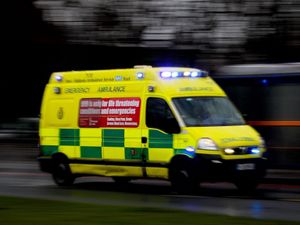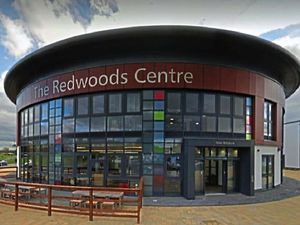Welsh ambulances delays blamed on queues at Shrewsbury hospital
Delays in ambulances getting to patients in Mid Wales have been blamed on queues at the Royal Shrewsbury Hospital.

The Welsh deputy health minister, Vaughan Gething, speaking in the Welsh Assembly said the bulk of handover delays affecting Powys patients in the last two months were at the Royal Shrewsbury Hospital.
Hospital bosses say that the problem is one the whole health economy has to deal with.
Assembly member for Montgomeryshire Russell George raised the crisis of Welsh emergency services in the Senedd, saying there had been a significant increase in reports of worrying delays in the time it takes for an ambulance to arrive following a 999 call.
He said that earlier this month, a Welshpool resident was forced to wait for seven hours for an ambulance.
“Residents often speak of the outstanding support and service which they receive from paramedics and the ambulance service when they are in their care.
“One constituent who fell over on the street in Newtown waited an hour-and-a-half on a cold pavement for the ambulance to arrive. In that time, the constituent's situation seriously deteriorated. The ambulance trust said that of the nine emergency vehicles available in the Powys locality at that time, seven were waiting outside hospitals to transfer patients. Earlier this month, a Welshpool resident waited seven hours for an ambulance.
Challenges
“There has to be something seriously wrong with the system when ambulances are queued up outside hospitals waiting to handover patients and then the knock on effect is that other patients are forced to wait for an ambulance."
Mr Gething said there were challenges at both Wrexham Maelor and Bronglais hospital.
"But the largest part of the challenge affecting your constituents is actually Shrewsbury," he said.
Nigel Lee, Chief Operating Officer at The Shrewsbury and Telford NHS Trust, said: “The NHS, nationally and locally, continues to see high demand on its services.
“Around 100 ambulances arrive at our emergency departments every day the equivalent of one ambulance every 15 minutes. Around 50 per cent of patients brought into our EDs by ambulance need to be admitted for further care. We want to make sure that the remaining patients are taken to the most appropriate place to be seen or treated rather than face an unnecessary trip to A&E.
"Of those who are admitted, too many are facing delays before they can be discharged from hospital. We are working very closely with NHS community partners and local authorities to improve timely discharge for the benefit of all patients who need acute medical care.
“This is an issue not just for us for our partners in the ambulance services, but for the whole health economy.”





